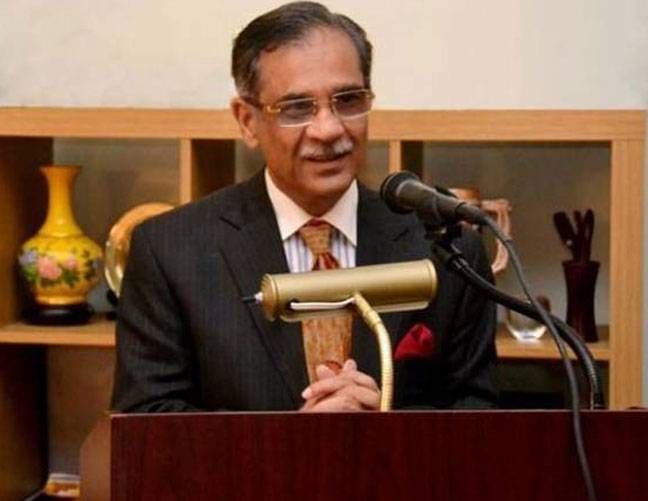ISLAMABAD - Chief Justice of Pakistan Mian Saqib Nisar on Tuesday formed a five-member bench to hear review petitions of former prime minister Nawaz Sharif and his children against the July 28 verdict in the Panama Papers case.
As per the Supreme Court rules, the bench comprises of the same five judges who had heard the Panama leaks case. Headed by Justice Saeed Khan Khosa, the bench would commence the hearing on the review petitions from today (Wednesday).
On Tuesday, a three-judge bench headed by Justice Ejaz Afzal, after hearing arguments of the counsel of the former premier and his children, referred the matter to the chief justice for constituting a larger bench. The chief justice then approved the larger bench later in the day.
During Tuesday’s proceeding, Justice Ejaz said that the order on July 28 was passed by a three-member bench. He said that if, after hearing the review petitions, they change the order then the five-member bench verdict will no more be valid.
Justice Azmat Saeed asked the counsel for the ex-PM’s children that “all the grounds you have taken in the review petitions are against the three-member bench. The first review petition was filed against the three-judge judgment while in the second review petition, you challenged the decision of the five-judge bench which is the same but you consider them additional grounds”.
Justice Ijazul Ahsan asked him if he “wanted to state that two judges of the five-member bench had not heard some portion of the case”.
Maryam, Hussain and Hassan Nawaz’s counsel Salman Akram Raja argued that the five-member should not have delivered the final judgment. To this, Justice Azmat said: “We are hearing this case not for your satisfaction but for our satisfaction as well.”
Justice Ejaz said “the entire thrust of your arguments is against the three-judge bench. If we change the order, then its consequences would be the same for the five-judge order”.
Salman said the five judges should not have heard the case. Justice Azmat asked, “Don’t you think it is an academic debate?”
The counsel argued that they still don’t know whether the judgment of April 20 was an interlocutory order or the final judgment. The basic question in the final judgment was to send the case to the trial court, he said.
Justice Ejaz remarked that “let’s assume if the five-member bench hears the case, then what about those two judges who had not heard the matter, they will sit idle”.
Justice Azmat addressing the counsel said, “You call it (April 20) final judgment but you have not filed a review petition against the minority judgment. There is no prayer against the judgment of the two judges.”
Nawaz Sharif’s counsel Khawaja Haris said that “they know whether July 28 judgment was of three-member bench or five-member bench as the five judges had not only signed the judgment but also endorsed it”.






